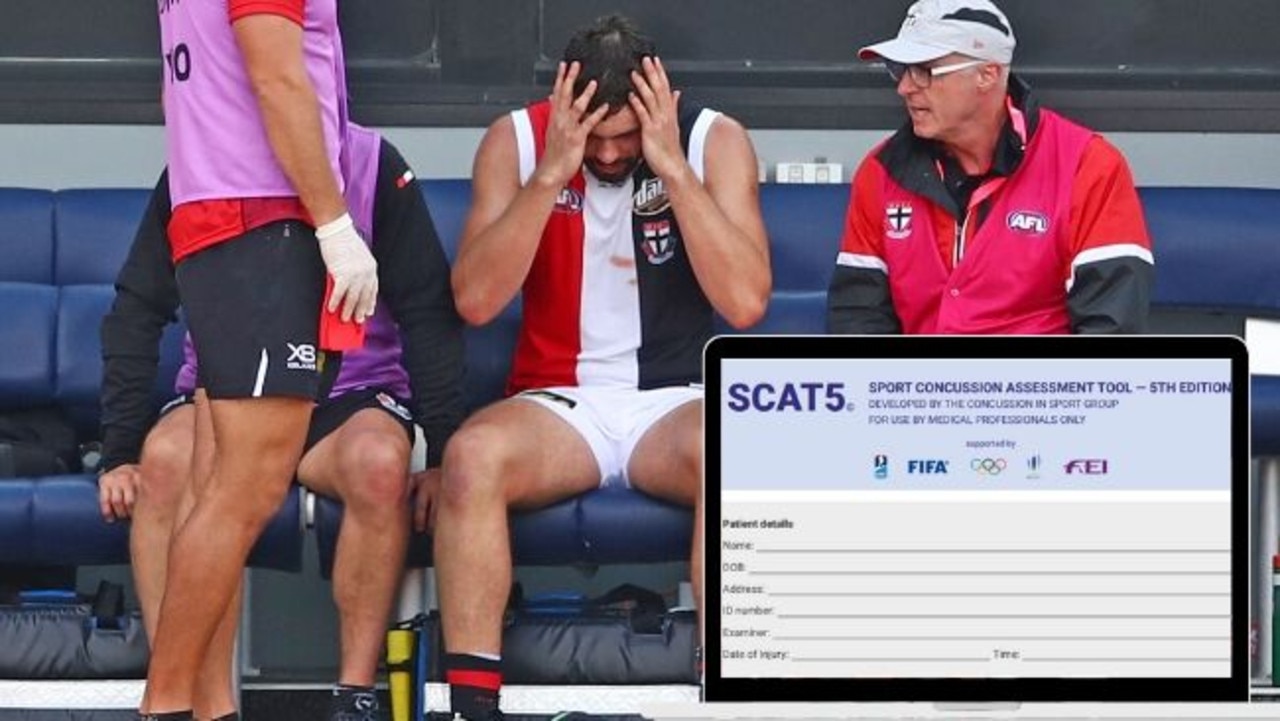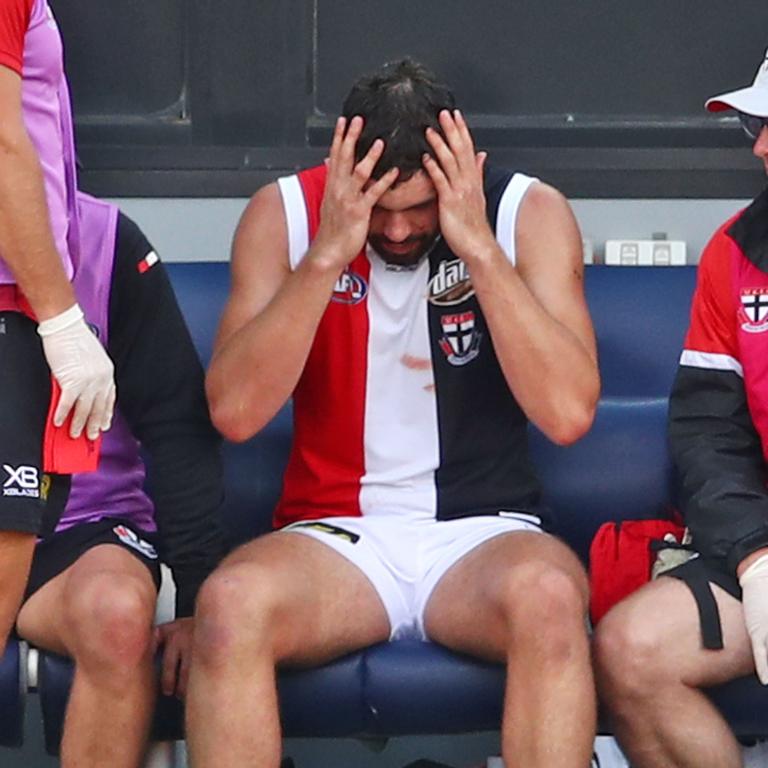Try the concussion test taken by AFL players on game day
What is involved in an AFL concussion test? Are the questions as simple as remembering who scored last and what you had for lunch? Take the test and find out whether you would pass.

When a player is concussed, what exactly is the testing regimen like?
The answer is extensive.
The league has a range of concussion management guidelines that all clubs are bound to follow, with the welfare of the player paramount.
Vision is considered, and the presence of any concussion symptoms or signs considered. If it’s suspected, on-bench AFL officials are advised and players are removed from the game for a mandatory 20 minutes for testing.
Is the player stunned, confused, have memory or balance problems, headache or dizziness? Or do they just feel a bit off?

The player is then checked using the Concussion Recognition Tool 5, which assesses observable signs, symptoms and then a memory assessment is conducted.
What venue are we at today? Which half is it? Who scored last in the game?
Any red flags means the player is removed from the game, and tests including the SCAT5 test undertaken.
So what is involved? Players take the test in “normal” state – usually during the off-season – to set a personal benchmark. Club doctors then have something personally applicable to every player to measure their results upon.
MORE CONCUSSION NEWS:
Graham ‘Polly’ Farmer first Aussie rules player diagnosed with CTE
Former Essendon, Geelong ruckman John Barnes details lifechanging concussion effects
Mark of the Century hero Shaun Smith reveals crippling toll of repeated concussion during AFL career
It tests everything from motor skills, balance and memory.
If concussion is diagnosed, players must also then undertake this test in the days following and before they are permitted to return to play.
Under new AFL concussion procotol to be implemented this year, players will need to pass the SCAT5 test a full five days before playing their next game.
The AFL, in conjunction with concussion experts at the Murdoch Childrens Research Institute, has also developed an app for junior football clubs called HeadCheck, which endeavours to help parents, coaches and first raiders recognise the signs of concussion and manage the child’s safe return to school and playing sport.
Would you pass the SCAT5 concussion test? Click here to find out
Here is the pocket version of the protocol that is also used on game day.
Speaking today, players association boss Paul Marsh said more AFL players being diagnosed with CTE is “inevitable.”
But the AFLPA chief executive was also adamant confirmation of the first positive case of the crippling neurological disorder did not elevate the seriousness with which officials were taking the concussion issue.
“Do I see more CTE coming out? I think it’s inevitable, only based on what we have seen in other sports,” Marsh said after revelations CTE was detected in the brain of Hall of Fame ruckman Graham “Polly” Famer.
“But it doesn’t change how seriously we see this. Today’s news doesn’t make this a more serious issue that it was yesterday. We have done a lot as an industry to make sure it’s being appropriately looked after.”
The AFL made a profit of close to $50 million last year but contributes a minimum of $250,000 a year to concussion research, a figure negotiated in the last player agreement with the AFLPA.
It’s pales in comparison to the more than $100 million committed by the NFL in 2016 to study concussion and its effects.
The AFL have released a statement after the frightening finding of State III CTE in Graham “Polly” Farrmer’s brain.
“The AFL is aware the Australian Sports Brain Bank at Sydney’s Royal Prince Alfred Hospital has made a CTE diagnosis in relation to former Australian footballer Graham “Polly” Farmer.
Graham Farmer’s playing career throughout the 1950’s and 1960’s was unrivalled, and his contribution to football was immortalised as one of the 12 original Legends inducted into the Australian Football Hall of Fame in 1996.
The AFL has not yet seen the detailed report in relation to the diagnosis but the AFL supports the work of the Australian Sports Brain Bank and welcomes the learnings that may come from their ongoing research.
The AFL thanks the Farmer family for their important contribution to research in this area, which further enhances Mr Farmer’s legacy in Australian Football.
The health and safety of all players in our game is paramount and as knowledge and understanding of concussion has increased, the AFL has strengthened match day protocols, changed the Laws of the Game to further discourage high contact and has improved the identification of potential concussive incidents through the use of video.
The AFL further strengthened the Concussion Management Guidelines for the 2020 AFL & AFLW seasons which reflects our ongoing conservative approach in managing concussions at the elite level.
The AFL will continue to invest in research to better identify and manage concussion and other brain related trauma at all levels of the game.”
Originally published as Try the concussion test taken by AFL players on game day


